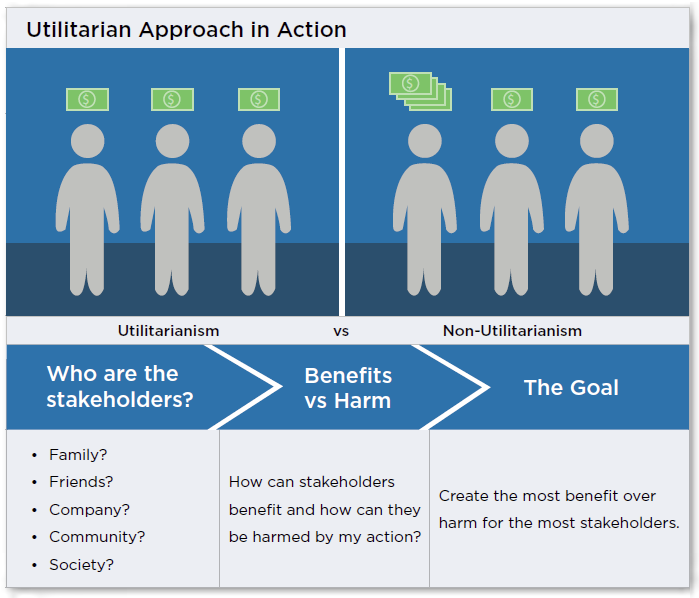Utilitarianism is a ethical theory that holds that the best action is the one that maximizes utility, or happiness, for the greatest number of people. In the context of business ethics, utilitarianism suggests that businesses should make decisions that maximize the overall happiness or well-being of all stakeholders, including employees, customers, shareholders, and the larger community.
One way that businesses might apply utilitarianism is by considering the potential consequences of their actions on all stakeholders. For example, a company might decide to invest in more environmentally friendly practices, not just because it is the right thing to do, but because it will also lead to long-term cost savings and improved public relations, which will benefit shareholders and customers.
Another way that utilitarianism might be applied in business is through a focus on creating the greatest good for the greatest number of people. This might involve prioritizing the needs and well-being of the most vulnerable stakeholders, such as low-income customers or marginalized communities. For example, a company might decide to donate a portion of its profits to a charitable organization that helps people in need, even if it does not directly benefit the company in the short-term.
Utilitarianism can also be used to justify certain business practices that might be viewed as controversial or unethical. For example, a company might decide to lay off a large number of employees in order to cut costs and remain competitive, even if it causes hardship for those employees. From a utilitarian perspective, this decision might be justified if it leads to the long-term survival and success of the company, which ultimately benefits all stakeholders, including the remaining employees.
However, utilitarianism is not without its criticisms. Some argue that it can be difficult to quantify and compare the utility or happiness of different individuals or groups, and that it might lead to negative consequences for some stakeholders. Additionally, utilitarianism does not take into account issues of fairness or justice, and might justify actions that are unethical or discriminatory if they lead to the greatest overall utility.
Overall, utilitarianism offers a useful framework for considering the ethical implications of business decisions, but it is important for businesses to also consider other ethical theories and principles, such as respect for autonomy, fairness, and justice.



:max_bytes(150000):strip_icc()/Term-Definitions_utilitarianism_FINAL-343d228ec5414e19bd56a1b40a694ab2.png)



